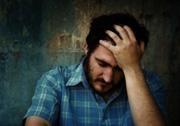New depression treatment trial
A non-invasive form of brain stimulation therapy for depression is delivering promising results in early trials, and researchers are looking for more people to take part in the study.
A non-invasive form of brain stimulation therapy for depression is delivering promising results in early trials, and researchers are looking for more people to take part in the study.

A trial of a new, non-invasive form of brain stimulation therapy for depression is delivering promising results in early trials, and now researchers are looking for more people to take part in the groundbreaking study.
Around 70 participants are being sought for the Direct Current Stimulation (DCS) trial, which is being coordinated by a leading depression research team based at The Black Dog Institute and the University of New South Wales (UNSW).
The trial is one of the largest of its type in the world and involves stimulating frontal areas of the brain with very small, barely perceptible currents, while patients remain awake and alert. It has no known serious side effects.
The study leader, UNSW psychiatry Professor Colleen Loo, said early results were looking promising.
"Thirty-one of the 44 people who have already completed the study have gained meaningful benefit over the course of the trial," Professor Loo said.
"Direct Current Stimulation primes the neurons so that when they are triggered, their response is enhanced. This trial is suitable for patients seeking an alternative to medication or who are unable to tolerate anti-depressant drugs or ECT."
Trial participants receive DCS for 20 minutes five times per week over three to six weeks. The trial is due for completion at the end of the year.
Early DCS studies in the 1960s and 70s reported good results using small electrical currents over a few hours. The technique has now been standardised, using currents of 1-2 milliamps. Recently, three small studies in Brazil and Italy also found promising improvements in depressed patients treated with DCS.
Depressed patients aged 18 and over who want to take part in the trial should phone 02 9382 3720 or email TMSandDCS@unsw.edu.au
Further information is also available on the Black Dog Institute website.
Media Contacts: Susi Hamilton, UNSW Media Office | 02 9385 1583 | 0422 934 024